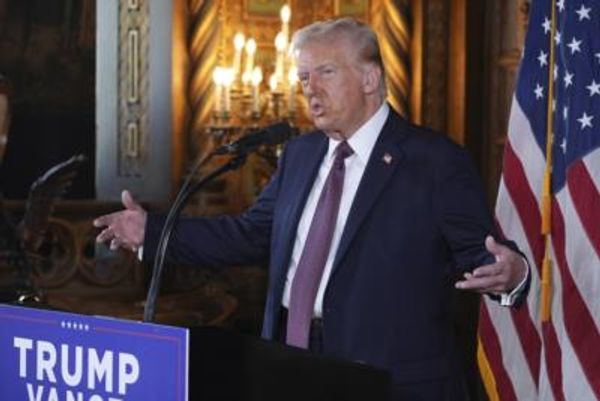
When asked, I describe the mid-afternoon sky of that February day as haunted. A blizzard of wild embers rained down like giant luminescent confetti as the darkness of ash and smoke descended. Through that fortress of haze and terror, we could see great walls of flame stalk the silhouette of surrounding mountains, and the ominous dusty glow of fires in Chum Creek and elsewhere loom closer and closer.
The scene felt apocalyptic, yet it was real.
Try as I might, I can’t recall with any precision the thoughts running through my mind on Black Saturday. But I do remember feeling irrevocably unmoored from that distended sense of hope about the future that most young people — as a general rule — only subliminally relinquish later in life, if at all.
And by most people, I mean to say all those but for the generations that follow mine, who more than any alive today tend to see hope not as a comfort or source of strength but as a stranger. Climate anxiety or ecological grief, however defined, borders on a quintessential health problem for the young people of today, and not without good reason.
Since the late 1980s — that sliding-doors moment when the science on anthropogenic global warming should have completed its peregrination from the margins of policy debate to the mainstream — humanity has managed to emit more atmospheric carbon than the previous two centuries combined.
The situation is such that even with immediate systemic action, anyone under 60 today is still likely to witness a partial destabilisation of life as we know it, as more frequent heatwaves, droughts and flooding — veritably biblical in scope — redefine our sense of normal.
Few under 40 in this connection will be spared the cascading devastation wrought by 2 degrees warming, expected within decades, as the onward march of famine, disease and other consequences of mass crop failures and extinctions kill and displace many hundreds of millions.
And those under 25, on current trends, are all but guaranteed to watch the ties of civilisation fray during their lifetime when the world eclipses at least nine climate tipping points, beyond which social and economic collapse, death and anarchy await.
If we dare stop pretending, in other words, the unflinching reality is that there is little to no hope for the world’s young people as things stand — which brings to the fore one of the great paradoxes of the current climate moment.
In recent years, outright climate denial — one of the overwhelming causes of global warming this century — has been superseded by a boundless false hope anchored to the rhetoric of action. This isn’t to say such denial is a thing of the past or, in the choice words of former prime minister Tony Abbott, “dead, buried and cremated”. Politically, it plainly continues to manifest in right-wing parties and the conservative press the world over, as US presidential contender Ron DeSantis proved on Sunday when he risibly lamented the “politicisation of the weather”.
The point is the rhetoric of governments around the world would have you believe that much of the globe has moved on and you can rest a little easier: the arc of human progress will bend towards reason sooner rather than later. But as ever, appearances can be deceptive.
Notwithstanding the global crescendo of hope that ushered in the Paris climate accord seven years ago, no country — not one — is on track to meet its 2030 climate goals, according to the Climate Action Tracker’s most recent report. And even if the converse were true, the sobering reality is that the combined weight of these commitments is nevertheless destined to condemn the world to between 2.4 and 2.8 degrees warming by century’s end.
This much, by the way, depends on the accuracy of such calculations, which other research suggests might have downplayed the pace and severity of climate breakdown.
It’s from this vantage point that the frontier to what climate scientist Michael E Mann has called the “new climate war” comes into sharper relief. “The true battle,” he writes, “has moved on from outright denial to deflection, distraction, and most of all, delay.” No longer is the defining challenge one of convincing humanity at large of the science or even the need to act to limit climate collapse. Instead the problem of today turns more closely on the thinly disguised dissonance that resides between reality and the words and pledges of the powerful.
All told, this is simply another way of saying that much of what confronts global warming in a policy sense nowadays is often little more than a miasma of delay and deceive tactics that, by design, obfuscate and masquerade as credible climate action.
Some have called this state-sponsored greenwashing, which it is. But others might rightly see it as democratic deceit and generational betrayal.
The Albanese government, in this respect, is no different, as its signature climate policy attests. Though the much-lauded safeguard mechanism carries the appearance of progress, requiring the country’s major polluters to cut emissions by almost 5% a year, the entire edifice allows this objective to be ostensibly met through the scam of carbon credits. In practice, this means fossil fuel projects can continue to expand under the guise of a climate policy otherwise described by experts as “environmental and taxpayer fraud”.
The problems only deepen when we’re reminded that the government’s central advisory body on climate policies — given an expanded mandate under Prime Minister Anthony Albanese — is still chaired by a man with links to not only the fossil fuel industry but so too the carbon credit market. Indeed, in a recent op-ed published in The Australian, the Climate Change Authority’s Grant King opened with the need to “dramatically reduce emissions”, only to go on to spruik the possibilities of carbon capture storage — yet another discredited technology that has long allowed fossil fuel projects to don the costume of “sustainability”.
This very same technology, it bears mentioning, was recently cited by the federal government to justify its $1.5 billion commitment to Darwin’s massive expansion of gas exploration, which it’s since rebadged as an investment not into “new gas” per se but “sustainable development”.
It’s in such ways that the era of outright climate denial has been replaced by a wilderness of smoke and mirrors littered with promises government has no intention of keeping. Indeed, the full scope of this confusing narrative, on a domestic scale at least, only truly assumes centre stage when it’s pointed out that people with links to the carbon market also occupy board positions in not only the Australian Renewable Energy Agency and Clean Energy Finance Corporation, but also some of the country’s leading environmental organisations.
Globally, the picture is scarcely less bleak, with fossil fuel lobbyists having recently taken to hijacking and skewing the tenor of debate at the United Nation’s annual COP climate summits. In a skirmish on this theme, this year’s COP meeting will be hosted by none other than the UAE’s most powerful oil executive, Sultan Al-Jaber.
No doubt, all of this will have the ring of news if you too have been distracted and ultimately blinded by the comforting narrative delivered by the government’s false promise of hope.
It might be that the government genuinely believes that humanity will act before it’s too late, or it holds to neoliberalism’s mantra of the benefits of economic growth no matter what. But even if that is so, and it seems unlikely, it’s now condemned us to repeat the trap of what archaeologist Ronald Wright has called the “myth of progress”, where the excesses of human success invariably vanquish a civilisation.
In truth, the clearest obstacle standing in the way of the necessary action to address global warming is, as one of the world’s leading climate scientists James Hansen pointed out long ago, state capture and the role of money in politics.
Absent donations reforms and other measures to reduce the privileging of special interests in politics, the young people of today will be forever deprived of hope. And the consequences carried by such an unholy status quo will surpass the terror of anything I witnessed on Black Saturday all those years ago.
Is young people’s future as dire as McGregor posits? Let us know by writing to letters@crikey.com.au. Please include your full name to be considered for publication. We reserve the right to edit for length and clarity.







